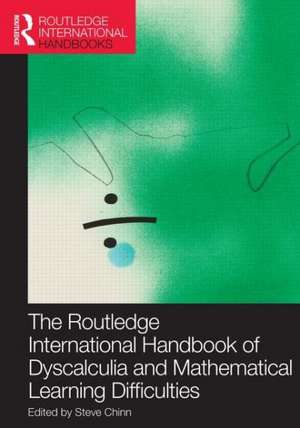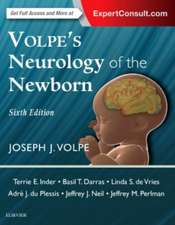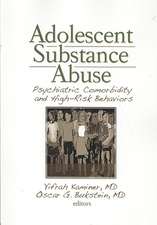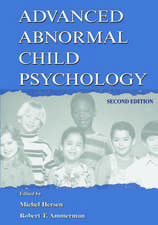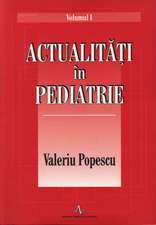The Routledge International Handbook of Dyscalculia and Mathematical Learning Difficulties: Routledge International Handbooks of Education
Editat de Steve Chinnen Limba Engleză Hardback – dec 2014
- What are mathematics learning difficulties and disabilities?
- What are the key skills and concepts for learning mathematics?
- How will IT help, now and in the future?
- What is the role of language and vocabulary?
- How should we teach mathematics?
| Toate formatele și edițiile | Preț | Express |
|---|---|---|
| Paperback (1) | 385.11 lei 22-36 zile | +44.08 lei 5-11 zile |
| Taylor & Francis – 12 oct 2017 | 385.11 lei 22-36 zile | +44.08 lei 5-11 zile |
| Hardback (1) | 1610.33 lei 43-57 zile | |
| Taylor & Francis – dec 2014 | 1610.33 lei 43-57 zile |
Din seria Routledge International Handbooks of Education
-
 Preț: 385.11 lei
Preț: 385.11 lei -
 Preț: 340.71 lei
Preț: 340.71 lei - 9%
 Preț: 1490.98 lei
Preț: 1490.98 lei -
 Preț: 341.06 lei
Preț: 341.06 lei -
 Preț: 334.02 lei
Preț: 334.02 lei - 9%
 Preț: 1594.01 lei
Preț: 1594.01 lei -
 Preț: 367.55 lei
Preț: 367.55 lei -
 Preț: 471.80 lei
Preț: 471.80 lei - 12%
 Preț: 331.87 lei
Preț: 331.87 lei - 12%
 Preț: 331.87 lei
Preț: 331.87 lei -
 Preț: 422.58 lei
Preț: 422.58 lei - 29%
 Preț: 1185.83 lei
Preț: 1185.83 lei -
 Preț: 416.22 lei
Preț: 416.22 lei -
 Preț: 466.02 lei
Preț: 466.02 lei -
 Preț: 455.78 lei
Preț: 455.78 lei - 18%
 Preț: 1574.36 lei
Preț: 1574.36 lei - 22%
 Preț: 455.27 lei
Preț: 455.27 lei - 11%
 Preț: 302.55 lei
Preț: 302.55 lei - 12%
 Preț: 331.87 lei
Preț: 331.87 lei - 12%
 Preț: 331.87 lei
Preț: 331.87 lei - 25%
 Preț: 541.50 lei
Preț: 541.50 lei - 26%
 Preț: 1830.09 lei
Preț: 1830.09 lei - 25%
 Preț: 1194.82 lei
Preț: 1194.82 lei - 18%
 Preț: 1568.21 lei
Preț: 1568.21 lei - 11%
 Preț: 341.86 lei
Preț: 341.86 lei - 18%
 Preț: 1554.29 lei
Preț: 1554.29 lei - 24%
 Preț: 426.49 lei
Preț: 426.49 lei - 15%
 Preț: 572.34 lei
Preț: 572.34 lei - 18%
 Preț: 1557.14 lei
Preț: 1557.14 lei - 18%
 Preț: 1617.55 lei
Preț: 1617.55 lei -
 Preț: 455.78 lei
Preț: 455.78 lei - 18%
 Preț: 1571.83 lei
Preț: 1571.83 lei - 15%
 Preț: 567.41 lei
Preț: 567.41 lei - 11%
 Preț: 343.25 lei
Preț: 343.25 lei - 31%
 Preț: 1689.67 lei
Preț: 1689.67 lei - 11%
 Preț: 339.94 lei
Preț: 339.94 lei
Preț: 1610.33 lei
Preț vechi: 1963.83 lei
-18% Nou
Puncte Express: 2415
Preț estimativ în valută:
308.13€ • 322.58$ • 254.96£
308.13€ • 322.58$ • 254.96£
Carte tipărită la comandă
Livrare economică 07-21 aprilie
Preluare comenzi: 021 569.72.76
Specificații
ISBN-13: 9780415822855
ISBN-10: 0415822858
Pagini: 488
Ilustrații: 70 black & white illustrations, 33 black & white tables, 25 black & white halftones, 45 black & white line drawings
Dimensiuni: 156 x 234 x 33 mm
Greutate: 0.77 kg
Ediția:1
Editura: Taylor & Francis
Colecția Routledge
Seria Routledge International Handbooks of Education
Locul publicării:Oxford, United Kingdom
ISBN-10: 0415822858
Pagini: 488
Ilustrații: 70 black & white illustrations, 33 black & white tables, 25 black & white halftones, 45 black & white line drawings
Dimensiuni: 156 x 234 x 33 mm
Greutate: 0.77 kg
Ediția:1
Editura: Taylor & Francis
Colecția Routledge
Seria Routledge International Handbooks of Education
Locul publicării:Oxford, United Kingdom
Public țintă
Postgraduate and ProfessionalCuprins
The International Handbook on Dyscalculia and Mathematics Learning Difficulties: An overview Steve Chinn 1.How can cognitive developmental neuroscience constrain our understanding of developmental dyscalculia? Stephanie Bugden and Daniel Ansari 2.Number Difficulties in Young Children: Deficits in Core Number? Robert A. Reeve; Sarah Gray 3. Sets and digits: How are they processed by children with typical and atypical numerical cognition? Evidence from brain and behaviour Vivian Reigosa-Crespo; Danilka Castro 4. When and why numerosity processing is associated with developmental dyscalculia Xinlin Zhou; Dazhi Cheng 5. Predictive indicators for mathematical learning disabilities/dyscalculia in kindergarten children Annemie Desoete 6. The link between mathematics and logical reasoning: Implications for research and education Denes Szucs; Kinga Morsanyi 7.How specific is the specific disorder of arithmetic skills? Karin Landerl 8. Arithmetic Difficulties of Children with Hearing Impairment Gowramma, I.P. 9. Arithmetic Difficulties among Socially Disadvantaged Children and Children with Dyscalculia Ramaa S 10. Meeting the needs of the ‘bottom eighty per cent’ – Towards an inclusive mathematics curriculum in Uganda Tandi Clausen-May 11. Dyscalculia in Arabic speaking children: Assessment and intervention practices John Everatt; Abdessatar Mahfoudhi; Mowafak Al-Manabri; Gad Elbeheri 12. Mathematics Learning and Its Difficulties among Chinese Children in Hong Kong Connie Suk-Han Ho; Terry Tin-Yau Wong; Winnie Wai Lan Chan 13. The Acquisition of Mathematics Skills of Filipino Children with Learning Difficulties: Issues and Challenges Sherlynmay Hamak; Jai Astilla Hazelle; P. Preclaro 14. The Enigma of Dyscalculia Jane Emerson 15. Deep Diagnosis, Focused Instruction, and Expanded Math Horizons R B Ashlock 16. Preschool Children’s Quantitative Knowledge and Long-Term Risk for Functional Innumeracy David C. Geary 17. Learning Disabilities: Mathematics Characteristics and Instructional Exemplars Diane Pedrotty Bryant; Brian R. Bryant; Mikyung Shin; Kathleen Hughes Pfannenstiel; 18. Targeted interventions for children with difficulties in learning mathematics Ann Dowker; Peter Morris 19. Focused MLD intervention based on the classification of MLD subtypes Giannis N. Karagiannakis; G. N.; Cooreman, A. 20. Numbersense: A Window into Dyscalculia and other Mathematics Difficulties Mahesh C. Sharma 21. The Center for Improving Learning of Fractions: A Progress Report Robert Siegler; Lynn Fuchs; Nancy Jordan; Russell Gersten; Rob Ochsendorf 22. Lights and Shadows of Mental Arithmetic: Analysis of cognitive processes in typical and atypical development Sara Caviola; Daniela Lucangeli 23. Teacher Training : Solving the problem Judy Hornigold 24. Mathematics Anxiety, Working Memory, and Mathematical Performance: The Triple Task Effect and the Affective Drop in Performance Alex M. Moore; Amy J. McAuley; Gabriel A. Allred; Mark H. Ashcraft 25. Mathematical resilience: What is it and why is it important? Clare Lee; Sue Johnston-Wilder 26. Linguistic factors in the development of basic calculation Chris Donlan 27. Promoting Word Problem Solving Performance Amongst Students With Mathematics Difficulties: The Role of Strategy instruction that Primes the Problem Structure Asha K. Jitendra; Danielle N. Dupuis; Amy E. Lein 28. Mathematical Storyteller Kings and Queens: an alternative pedagogical choice to facilitate mathematical thinking and understand children’s mathematical capabilities Caroline McGrath 29. The Effects of Computer Technology on Primary School Students’ Mathematics Achievement: a Meta-analysis Egbert Harskamp 30. Representing, Acting, and Engaging: UDL and Mathematics Elizabeth Murray; Garron Hillaire; Mindy Johnson; Gabrielle Rappolt-Schlichtmann 31. Dyscalculia in Higher Education: systems, support and student strategies Clare Trott
Recenzii
"I am convinced that most chapters of The Routledge International Handbook of Dyscalculia and Mathematical Learning Difficulties will serve as far more than a didactic summary of current knowledge in the field. Each chapter is sure to fascinate readers with its wide range of perspectives and leave behind important ideas applicable to the myriad issues in the learning and teaching of mathematics."- Woong Lim, University of New Mexico, Mathematical Association of America
Descriere
Mathematics plays an important part in every person’s life, so why isn’t everyone good at it? The Routledge International Handbook of Dyscalculia and Mathematical Learning Difficulties brings together commissioned pieces by a range of hand-picked influential, international authors from a variety of disciplines, all of whom share a high public profile.
By posing notoriously difficult questions such as these and studying the answers The Routledge International Handbook of Dyscalculia and Mathematical Learning Difficulties is the authoritative volume and is essential reading for academics in the field of mathematics. It is an incredibly important contribution to the study of dyscalculia and mathematical difficulties in children and young adults.
By posing notoriously difficult questions such as these and studying the answers The Routledge International Handbook of Dyscalculia and Mathematical Learning Difficulties is the authoritative volume and is essential reading for academics in the field of mathematics. It is an incredibly important contribution to the study of dyscalculia and mathematical difficulties in children and young adults.
